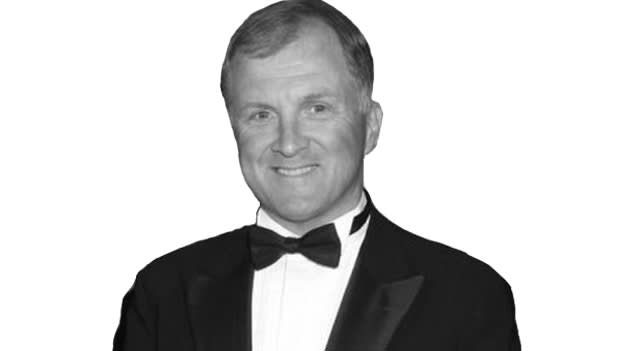Hugo MacNeill on psychological safety and the best game of his life

“Stay SHARP” is Tal Ben-Shahar’s monthly newsletter on how to experience positive psychology in the workplace. “SHARP” is an acronym covering five essentials for being successful leaders: Strengths (Focusing on your strengths rather than your weaknesses), Health (Making sure you always have high energy levels), Absorption (The ability to focus on today’s fragmented digital age), Relationships (positive and authentic relationships), and Purpose (Finding a meaningful purpose in your daily activities).
In June’s issue, Angus Ridgway – Tal’s co-founder at Potentialife – interviewed Hugo MacNeill, MD of Goldman Sachs, and a former Irish & Lions rugby international. He asked him how Potentialife helped him bring “SHARP” to life.
Hugo, what was it about the Relationship modules in Potentialife that resonated for you?
It articulated something for me that to some extent I always knew but hadn’t quite said out loud. And that is that the best leaders I’ve ever seen – in the boardroom or on the sports field – have had one common trait: they genuinely cared about other people. Potentialife captures that well and provides a pragmatic way of doing it more through increasing psychological safety.
Some people see psychological safety as a grand term, what does it mean for you?
I think in practice it’s about making sure everyone in the team feels respected, cared for and listened to. It’s not about titles or experience – it’s more of a meritocracy actually. If you have an idea, the team want to hear it and give you the right space to try it out – and it’s OK if it doesn’t always work, as long as people are communicating and learning as they go.
Interesting. Do you think that view of leadership is widely practiced in finance?
I would say it’s mixed. I remember one executive in our business who really embodied this. Her team felt genuinely cared about as individuals – what Potentialife might call “psychologically safe”. More than that, she often went out of her way to bring this spirit to the wider office. For instance, she noticed that there was no regular outing for assistants across the firm – and so she took it upon herself to organise one every year. Everyone noticed her way of leading – and those below her gravitated towards her as a mentor and boss. She was known for leading positive teams who would innovate and deliver exceptional results for clients.
Without naming names, there was an equally senior executive at the other end of the spectrum. He once gave a speech to junior staff right after we had had to make lay offs. I remember clearly how he casually referred to the need to ‘chop wood’. The audience had just seen many of their friends and peers lose their jobs – and realised pretty clearly that here was a ‘leader’ in their business who didn’t care about them as people. Needless to say, he didn’t inspire the same level of followership.
The difference is stark. We hear a lot about how leadership from the sports field can be applied in business. As someone who’s competed at the top of both, is this something that resonates for you? Is psychological safety relevant for sports teams?
Absolutely. In fact I remember one very pivotal moment in my rugby career.
I had recently started working in consulting in London – alongside playing for the Irish national team. These were the non-professional days and I was one of the few guys working outside of Ireland. I was getting a lot of stick about ‘the London wine bars’ and the ‘yuppie lifestyle’ from the team. In truth, I was being pushed very hard at BCG and I was fitting training sessions in early in the morning and late at night to make sure I was fit and ready for games at the weekends.
“At that moment our Captain Ciaran Fitzgerald stood up to speak…I was expecting another round of bad news. Instead he broke the narrative and and told everyone how hard we were working to be there”
After one bad defeat – the coach brought us all together for a team meeting and was giving us a rollicking. I guess we all felt a bit exposed and I was questioning somewhat if I could make the combination of the London job and rugby career work. At that moment our Captain Ciaran Fitzgerald – a guy who was known as a loud, tough, take-no-prisoners kind of captain stood up to speak. I was expecting another round of bad news.
Instead he came over to me and turned to the rest of the group and broke the narrative that had been building up. He stated how he knew how many sacrifices I was making to play for Ireland, how hard I was working and training in London every week and how valuable I was to the team. He demonstrated clearly that he knew us as individuals and he cared about why each of us was there. It completely changed the atmosphere – and all of our levels of self-confidence. We were also determined not to let Ciaran down. That next game was probably the best game I ever played for Ireland – and I learnt a lesson in leadership that I have never forgotten.
(This article was first published on Potentialife.com)













